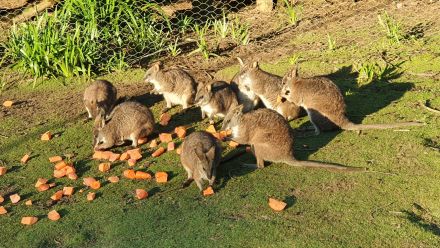Study maps plan to save native rodent from extinction
A first-of-its-kind genetic study of the endangered Australian Pookila - formerly known as the New Holland Mouse - is contributing to saving the species from extinction.
The study, a collaboration between researchers at The Australian National 51łÔąĎÍř (ANU), Museums Victoria and Zoos Victoria, used samples from museum specimens and surviving Pookila populations to track the decline of the rodent species in recent decades.
Senior author Dr Emily Roycroft from ANU said the species has lost 23-35 per cent of its genetic diversity to local extinction in Victoria during the past 50 years.
"Genetic diversity gives us a sense of how healthy a population is," Dr Roycroft said.
"Higher genetic diversity indicates the species can adapt to future changes in the environment, while rapid loss of genetic diversity can lead species into an extinction vortex."
Native to south-eastern Australia, the Pookila is already classified as extinct in seven of its 12 known Victorian locations, and has not been live trapped on mainland Tasmania since 2004 despite extensive survey efforts.
According to Zoos Victoria's Dr Phoebe Burns, who leads annual monitoring of the existing Victorian populations, understanding the Pookila's genetic health is critical when devising a conservation plan.
"The species faces a lot of threats, including feral predators, increasingly severe bushfires and droughts, competition with invasive rodents, and habitat loss," Dr Burns said.
"Declines is any of the remaining populations would lead to further loss of genetic diversity, placing the species at even greater risk of extinction."
But there might be a solution. The study's authors believe 'genetic rescue', or mixing of individuals from different populations, could help boost genetic diversity and reduce inbreeding.
A Victorian Pookila Conservation Breeding and Reintroduction Program is already underway at Melbourne Zoo (Zoos Victoria) and Moonlit Sanctuary, and has successfully produced healthy offspring.
It will soon see mixed-heritage Pookila released into genetically at-risk Victorian populations. Pookila will also be reintroduced to locations where threats have been controlled, such as cat-free areas.
"With appropriate, data-driven genetic management, extensive population monitoring, and habitat and threat management, we're confident surviving populations can be saved from extinction in Victoria," Dr Roycroft said.
The study has been published in


